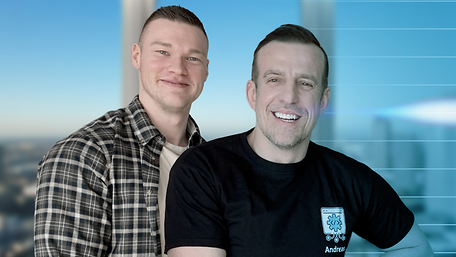Article: How agile software development is driving solutions for DB today
Using the DevOps model, teams manage applications over their entire life cycle from a single source. This gives them more creative freedom and greatly accelerates the delivery of features to production – but also requires flexibility and versatility.
When agile development and software operations are merged in one team with the DevOps approach, software is created in shorter development cycles: every new functional requirement and every fixed error can reach users in a very short time. This makes digitalisation and the pace of innovation at DB even faster. To make this work on a day-to-day basis, our DevOps teams work and organise themselves differently to teams dedicated exclusively to development or operations.
They develop the application in an agile approach in short cycles and take care of operations at the same time – many tasks come together: they plan, code and test, install updates during operation and monitor operation of the applications so that faults can be rectified at any time. A different culture and new skills are important for the transformation to DevOps. Cloud technology and automation are the most important tools in the DevOps trade. This way of working is ideal for colleagues who are enthusiastic about continuous professional development and constant learning.
The everyday work of DevOps teams at DB Systel
DB Systel has made a conscious decision to adopt the DevOps production model as its favoured model. We also endeavour to work as closely as possible with the respective partners and functional departments. We currently have well over 100 teams working in DevOps mode. As a DevOps engineer in such a team, you have a lot of responsibility, but also a great deal of creative freedom. You are not a little cog in the machine, but have a very overarching view. Our teams manage their solutions “from end to end" and therefore also have long-term product responsibility.
Well-rehearsed DevOps processes – the balance of skills and tasks – are demanding for the entire team. In practice, employees in DevOps teams also have a variety of specialisations: some focus on development, others look more at architecture or operational issues. Nevertheless, everyone in the team should have a good overview of the solution and be familiar with the company’s requirements. But DevOps teams are not left to handle these tasks on their own: DB Systel has clear structures for how DevOps works and supports teams with measures such as training and centralised platforms and tools that support development and operations with ready-made standards. As a rule, we work on behalf of our partners, i.e. other Group companies. We increasingly see IT solutions as a long-term product instead of just thinking in terms of projects.
What skills do DevOps experts need?
A DevOps team shares a very broad and extensive responsibility, which results in demands being placed on individual team members. No single team member can fully master all the complex tasks that arise in a DevOps team. In many places, this requires expertise in individual fields such as "backend development" or "cloud infrastructure". At the same time, we want to organise our teams in such a way that they can adapt flexibly to different situations and work together effectively.
In practice, it has therefore proven successful for DevOps team members to understand and develop their abilities in terms of the “T-shape" skillset. The vertical line of the "T" stands for the respective specialisation and the upper horizontal line for a broad basic knowledge in related subject areas. For employees in a DevOps team, it is essential to make the respective skills requirements and the existing skills in the team transparent and to align the skills development of the team and its members accordingly. This enables us to create resilient teams that work well even in the event of planned or unplanned absences of team members. A healthy curiosity and a willingness to familiarise themselves with new topics are therefore important qualities for DevOps engineers.
Technologies we deploy
DevOps teams at DB Systel use numerous technologies for development, pipelining and operations, depending on requirements.
As a cloud infrastructure provider, we currently rely on AWS and Azure. The platforms and tools we use include Kubernetes (OpenShift), Docker, Artifactory, Gitlab and Gitlab CI.
Frequently used programming languages and frameworks are Java, Kotlin and Spring Boot as well as TypeScript, React or Angular.
Some DB Systel teams work as platform teams and make DevOps tools and platforms available to other DevOps teams. For example, we offer Kubernetes-as-a-service, CI/CD-as-a-service and monitoring-as-a-service.
IT and business units will grow even closer together in the future
New forms of collaboration are currently developing between IT and the business units. BizDevOps, for example, links the development and operational processes even more closely with the business in the unit. This overcomes boundaries, creates shared responsibility and shared working structures for IT, strengthens business processes and ultimately boosts economic value added.
DevOps gives many employees an opportunity to show off their talent
Our teams benefit from specialists as well as from all-rounders – application developers are just as much at home as cloud engineers. DB Systel supports numerous different software products – from DB enterprise solutions through to its own products and brand new digitalisation projects. With us, you can help to advance digitalisation at a company that is vital to our society. We will find the right teams for you and support your growth with advanced training and development opportunities tailored to your interests.
